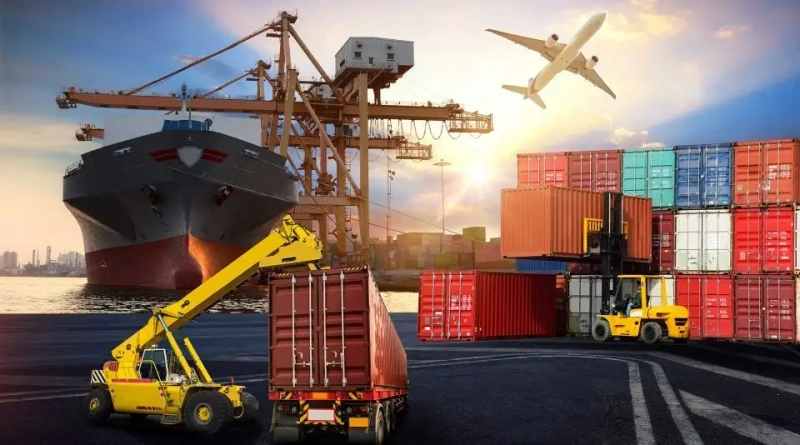Introduction mobile app development or web development:
Freight land, the backbone of global commerce, is undergoing a transformative journey. As the demands of logistics evolve, so too does the landscape upon which goods are transported. In this article, we delve into the intricacies of freight land, exploring the technological advancements, environmental considerations, economic factors, and regulatory challenges shaping its future.
Understanding the Dynamics of Freight Land:
Freight land encompasses various modes of transportation, including rail, road, air, and sea. Each mode plays a crucial role in the movement of goods across vast distances, connecting producers with consumers worldwide. The efficiency and reliability of these transport networks are essential for businesses to meet customer demands and remain competitive in today's fast-paced market.
Technology's Impact on Freight Land Management:
Advancements in technology are revolutionizing the way freight land land is managed and operated. From automated warehouses to real-time tracking systems, digital innovations are enhancing efficiency, reducing costs, and improving the overall logistics experience. Artificial intelligence, blockchain, and Internet of Things (IoT) solutions are increasingly being integrated into freight operations, offering greater visibility and control over supply chains.
Sustainability in Freight Land Operations:
With growing concerns about environmental sustainability, the freight industry is under pressure to reduce its carbon footprint. Strategies such as green logistics, alternative fuels, and electric vehicles are gaining traction as companies seek to minimize their environmental impact. Sustainable practices not only benefit the planet but also contribute to cost savings and enhance corporate social responsibility efforts.
Global Trade and the Role of Freight Land:
Freight land plays a vital role in facilitating global trade, enabling the flow of goods between countries and continents. Trade agreements, geopolitical factors, and economic shifts influence the volume and direction of freight movement, shaping the demand for transportation infrastructure and services. As emerging markets continue to grow, the importance of efficient freight land networks will only increase.
Challenges and Opportunities in Freight Land Development:
Despite its importance, freight land faces numerous challenges, including infrastructure constraints, capacity limitations, and regulatory complexities. Balancing the need for investment with economic realities presents a significant hurdle for policymakers and industry stakeholders. However, these challenges also present opportunities for innovation and collaboration, driving forward-thinking solutions to address the evolving needs of logistics.
Innovations Shaping the Future of Freight Land:
The future of freight land is being shaped by a range of innovative technologies and concepts. From hyperloop systems to autonomous vehicles, new modes of transportation are on the horizon, promising faster, safer, and more efficient delivery options. Additionally, advancements in data analytics and predictive modeling are empowering companies to optimize their supply chains and respond quickly to changing market dynamics.
Adapting to Changing Regulatory Landscapes in Freight Transport:
Regulatory frameworks play a critical role in shaping the operation of freight land networks. From safety standards to emissions regulations, compliance with government mandates is essential for businesses operating in the logistics sector. Navigating these complex landscapes requires careful planning, investment, and collaboration between industry stakeholders and policymakers.
Collaboration and Connectivity: Building Resilient Freight Land Networks:
In an interconnected world, collaboration and connectivity are essential for building resilient freight land networks. Partnerships between governments, businesses, and technology providers are key to overcoming infrastructure challenges and ensuring the smooth flow of goods across borders. By working together, stakeholders can create more efficient, sustainable, and reliable transportation systems.
The Economics of Freight Land: Balancing Cost Efficiency and Quality Service:
At the heart of freight land management lies the challenge of balancing cost efficiency with quality service. Rising fuel prices, labor costs, and market volatility pose significant challenges for logistics providers seeking to maintain profitability. However, investments in technology, infrastructure, and process land freight transport can help companies achieve a competitive edge while meeting customer expectations.
Future Trends and Predictions for Freight Land Management:
Looking ahead, several trends are likely to shape the future of freight land management. These include the continued expansion of e-commerce, the rise of urban logistics solutions, and the integration of autonomous technologies into transportation networks. Additionally, the growing emphasis on sustainability and resilience will drive demand for innovative solutions that address environmental concerns and mitigate supply chain risks.
Conclusion:
As the world becomes increasingly interconnected, the importance of efficient and sustainable freight land management cannot be overstated. By embracing technology, collaboration, and innovation, businesses can navigate the evolving landscape of logistics and position themselves for success in the global marketplace. The future of freight land holds immense promise, offering opportunities for growth, efficiency, and resilience in an ever-changing world.


